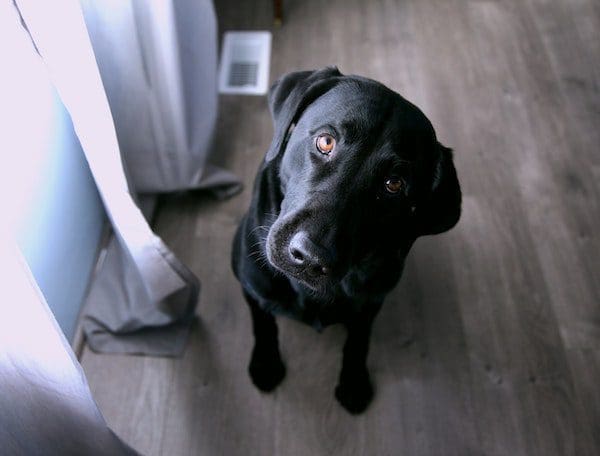Nearly once a week, he’d stuff cookies into his pocket and we’d hike the river. And always, we stopped for coffee and Chai tea to sip with his stash of cookies. It was Cody who taught me to pay closer attention to the wonders surrounding us.

Cody was a Navy pilot, landing and taking off from a moving target on the great seas of the world. After his years of service, he flew commercial.
Married to my friend Nancy, Cody was diagnosed with Alzheimer’s—too soon, too young. In the middle of COVID-19, he slipped away from this life on earth.
There are a number of sorrowful events that pound on our hearts when our family and friends get ambushed. Alzheimer’s. Divorce. Infertility. Loss of a loved one to drugs, war, or cancer.
We’re not always comfortable being around the grieving. Because we don’t know what to say or do.
This thought from Ann Voskamp:
The way through brokenness is, and always has been, to break the sufferer free from the aloneness of the suffering by choosing to participate in the suffering with them.
The word ‘compassion’ is derived from cum (with) and pathos (pain). Likewise, ’empathy’ is comprised of em (in) and pathos (pain).
Being with someone, sharing in their pain and sorrow—this is the highest good of compassion and empathy.
Consider these 9 great ways to support our family and friends in their grief, especially as we head into the winter holiday season:
1. Be present
I heard a young woman tell about packing up her laptop every morning and working from her friend’s dining table. Her friend’s husband had died unexpectedly and this woman was simply saying, I’m here if you want to talk. I’m here if you don’t want to talk. You are not alone.
With COVID-19 ramping back up, being present is more of a challenge. FaceTime, Skype, or Zoom are not the same as being in person. But being able to see a face and hear a voice is the next best thing.
2. Listen well
There’s a name for people who ask questions in the face of loss. Psychologists refer to them as openers. “Unlike non-question-asking friends,” wrote Adam Grant and Sheryl Sandberg in their book, Option B, “openers ask … and listen to the answers without judging.”

Asking questions and listening well is a priceless gift to the one grieving.
Questions like, “You two had an amazing marriage, but I would imagine it wasn’t long enough. How’s your heart?” “What are some of your favorite memories of your child?” Or, “What coping skills have you used in the past to help you through difficult times?”
Don’t assume everyone will want to talk about their loss. Follow the lead of the one grieving.
3. Say something
Shauna Niequist, in her book Bittersweet, wrote about losing her job at her church, feeling embarrassed and hurt and tender, and remembering exactly who walked the other direction and who walked toward her:
If you don’t know what to say, try this: ‘I heard what happened, and I don’t know what to say.’
Whatever you do, say something.
4. Avoid clichés
Speaking from experience, platitudes such as, “God doesn’t give you more than you can handle”, or “What doesn’t kill you makes you stronger,” aren’t helpful. At all. Instead, ask the griever about his/her loss: “What is it like?”
5. Validate the sufferer
This wisdom from Nanea Hoffman:
In case you need to hear this: What happened was real. Your feelings are valid. You are entitled to heal in whatever way you need and in your own time. You are not alone, even if it feels that way. You are necessary in this world. I see you.
Such simple yet lovely things to say: “Your suffering is real.” “I see you.” “You are loved.”

6. Don’t try to fix anything
Part of the discomfort of hanging out with people in their grief comes from feeling helpless to fix their pain. But we’re not called to fix anything.
This thought from Grief Recovery Method:
The most loving thing you can do is listen to them without trying to fix them.
7. Be specific
It’s kind to say, “Let me know if I can do anything.” But it’s more helpful to be specific: “I’m coming by to (help you decorate for the holidays, wrap gifts, clean your house). What time is good for you?” Or, “We’re mailing a care package. What’s your favorite (magazine, candle scent, lotion, bookstore, local spa)?”

8. Extend godly comfort
The Apostle Paul wrote a letter to the believers in ancient Corinth: “Praise be to the God and Father of our Lord Jesus Christ, the Father of compassion and the God of all comfort, who comforts us in all our troubles, so that we can comfort those in any trouble with the comfort we ourselves receive from God.” – 2 Corinthians 1:3-4
Judging by the number of times the word comfort appears in this short passage, this concept surely must be important to God. Our losses are not all the same. But we’ve all known God’s comfort—if we haven’t pushed it away. And that makes us eligible to extend that same comfort toward others.
9. Reach out with chocolate
And then there’s chocolate. Enough said.

What if?
My brother-in-law lost his wife in a tragic accident six months after they were married. When he started dating the girl who is now my lovely sister-in-law, she asked questions about his first wife. My brother-in-law remembers how “it felt good to talk about her with someone who seemed interested.”
This thought from Jamie Anderson:
Grief, I’ve learned, is really just love. It’s all the love you want to give, but cannot. All of that unspent love gathers in the corners of your eyes, the lump in your throat, and in the hollow part of your chest. Grief is just love with no place to go.
What if we could sit with our sorrow and not be afraid to let the tears flow like waterworks?
What if we could sit with someone in their sorrow, and ask appropriate questions, and listen well, and not try to fix anything, and offer chocolate, and offer godly comfort?
We can. All this. Compassion, sensitivity, and selflessness required.

Marcia Dennis
I got a lump in my throat reading the Jamie Anderson quite. The “being present” is good, too. My husband died 11 months ago. My friends somehow intuitively know how to not ask and, instead, let me lead any discussion. Thank you!
Marlys Johnson
So sorry to hear about your loss, Marcia. What wonderful friends you have! Blessings to you during this holy season – your first without your husband.
Jeanette Scott
Marlys, every suggestion that you listed is appropriate and helpful. Thank you for posting this at holiday time.
Marlys Johnson
Thank you for your kind words, Jeanette … and thanks for reading!
Fawn Pratt
Wow Marly you are so timely with this message. When I lost my folks to a motorcycle accident, the greatest thing from someone I didn’t know was a hug! No words were spoken.
Blessings
Marlys Johnson
I can’t imagine your loss, Fawn. But this: “… the greatest thing from someone I didn’t know was a hug.” Wow … how powerful was that simple gesture. Blessings to you and yours during this holy season.
Joe Albert
???????????????????????? I applaud you . That was excellent. I especially like Jamie Anderson’s quote.
Marlys Johnson
Thank you, Joe. Jamie Anderson’s quote is awesome.